
Riga Bay: Latvia's Coastal Gem
Nestled between the vibrant city of Riga and the serene coastline, Riga Bay offers a unique blend of natural beauty and cultural richness. The bay's sandy beaches, crystal-clear waters, and lush forests make it a perfect getaway for nature lovers and adventure seekers alike. Visitors can enjoy a variety of outdoor activities such as swimming, kayaking, and hiking along picturesque trails. Riga Bay is not just about nature; it also holds historical significance. The bay has been a hub of trade and commerce for centuries, and its coastal towns are dotted with charming old buildings and bustling markets. The fishing villages around the bay offer a glimpse into the traditional Latvian way of life, and you can sample fresh seafood straight off the boat. For those interested in history and architecture, the nearby city of Riga, a UNESCO World Heritage site, boasts stunning Art Nouveau buildings and medieval old town streets. A short drive from the bay, Riga's cultural attractions, including museums, galleries, and theaters, provide an enriching experience for visitors of all ages.
Local tips in Riga Bay
- Visit during the summer months for the best weather and beach activities.
- Explore the coastal towns for fresh seafood and local markets.
- Take a guided tour to learn about the bay's historical significance.
- Don't miss the nearby city of Riga for its stunning architecture and cultural attractions.
Riga Bay: Latvia's Coastal Gem
Nestled between the vibrant city of Riga and the serene coastline, Riga Bay offers a unique blend of natural beauty and cultural richness. The bay's sandy beaches, crystal-clear waters, and lush forests make it a perfect getaway for nature lovers and adventure seekers alike. Visitors can enjoy a variety of outdoor activities such as swimming, kayaking, and hiking along picturesque trails. Riga Bay is not just about nature; it also holds historical significance. The bay has been a hub of trade and commerce for centuries, and its coastal towns are dotted with charming old buildings and bustling markets. The fishing villages around the bay offer a glimpse into the traditional Latvian way of life, and you can sample fresh seafood straight off the boat. For those interested in history and architecture, the nearby city of Riga, a UNESCO World Heritage site, boasts stunning Art Nouveau buildings and medieval old town streets. A short drive from the bay, Riga's cultural attractions, including museums, galleries, and theaters, provide an enriching experience for visitors of all ages.
When is the best time to go to Riga Bay?
Iconic landmarks you can’t miss
House of the Black Heads
Explore Riga's iconic House of the Black Heads: a symbol of history, architecture, and the Hanseatic League in the heart of Old Town.
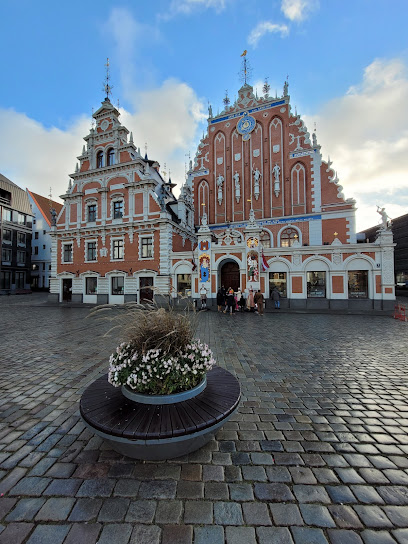
Reconocimiento UNESCO al Centro Histórico de Riga
Explore Riga's Historic Centre, a UNESCO site blending medieval charm with stunning Art Nouveau architecture in the heart of the Baltics.
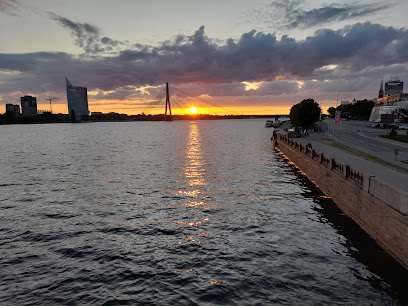
Unmissable attractions to see
The Corner House
Discover the haunting history of KGB operations in Latvia at The Corner House, a must-visit museum in Riga's Central District.
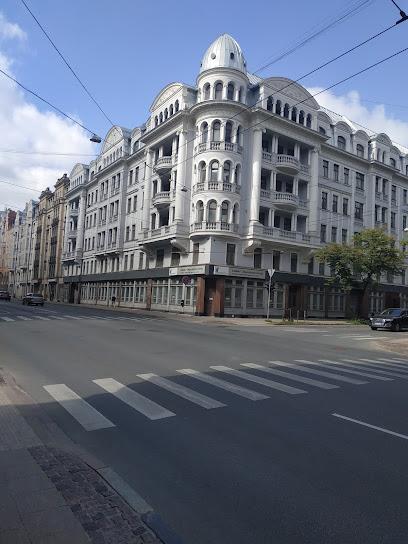
Cat House
Discover the whimsical charm of the Cat House in Riga, a unique architectural gem adorned with playful cat sculptures that symbolize the city's artistic spirit.
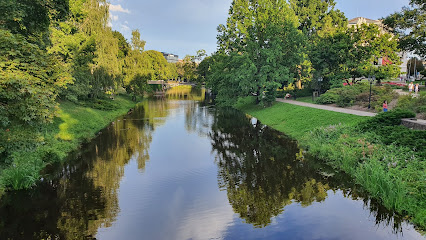
Latvian Museum of Natural History
Discover the Latvian Museum of Natural History: a captivating journey through nature's wonders in the heart of Riga.
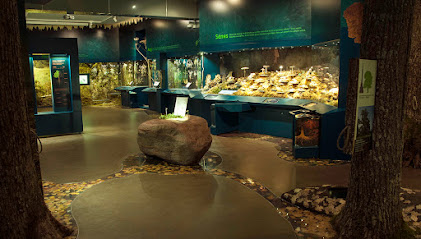
Latvian flagpole
Discover the Latvian Flagpole in Riga, a stunning symbol of national pride and a must-see tourist attraction surrounded by serene green spaces.
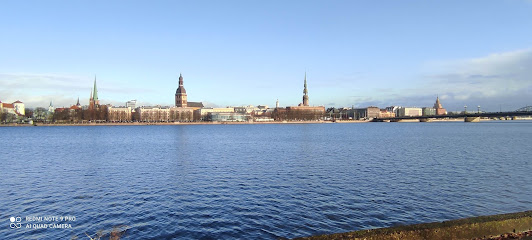
Mežaparks
Experience the lush landscapes and tranquil atmosphere of Mežaparks, Riga's premier urban park, perfect for relaxation and outdoor activities.
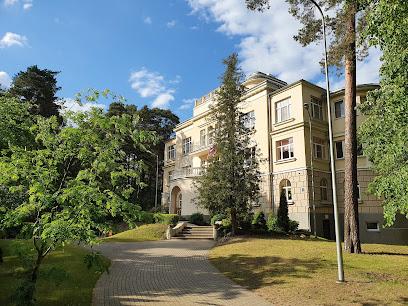
Essential places to dine
Rozengrāls (Vinarium civitatis rigensis)
Discover the medieval charm and traditional Latvian cuisine at Rozengrāls, one of Riga's most enchanting dining experiences.
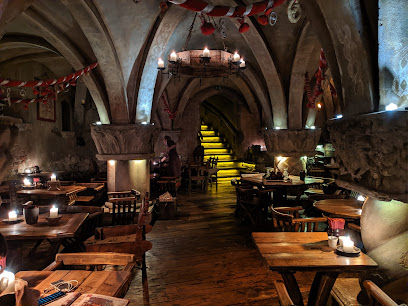
OGLE
Discover Ogle in Riga: where exceptional grilled cuisine meets vibrant atmosphere for an unforgettable dining experience.
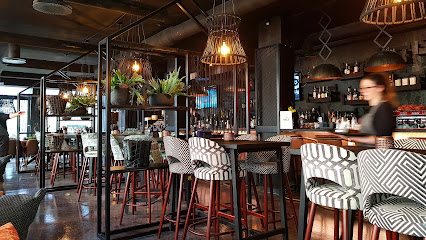
Lido Dzirnavas
Discover authentic Latvian flavors at Lido Dzirnavas - a beloved self-service restaurant in the heart of Riga's Central District.
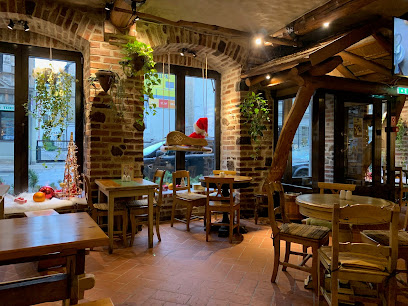
Province restaurant
Experience authentic Latvian cuisine in a cozy atmosphere at Province Restaurant in the heart of Riga.
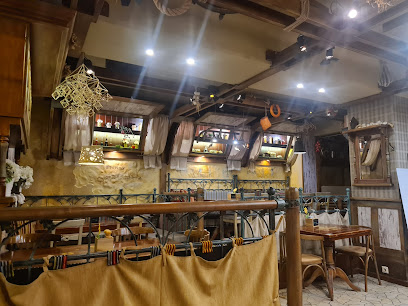
Garage
Discover Riga's dynamic culinary scene at Garage: where modern cuisine meets vibrant nightlife in an industrial-chic setting.
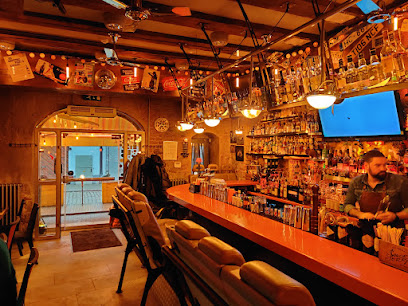
Lidojošā varde
Discover the flavors of Latvia at Lidojošā Varde - where tradition meets taste in the heart of Riga.
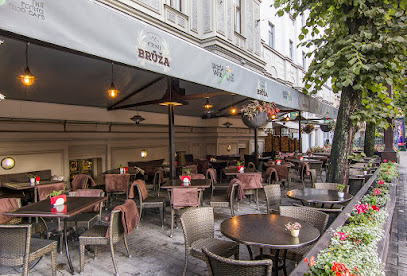
Domini Canes
Experience exquisite European dining at Domini Canes in Riga - where traditional flavors meet modern culinary excellence.
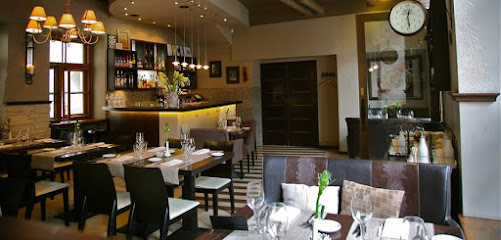
Gan bei - Akropole
Discover exquisite Asian fusion cuisine at Gan Bei - Akropole in Riga; a must-visit for food lovers seeking delicious sushi and more.
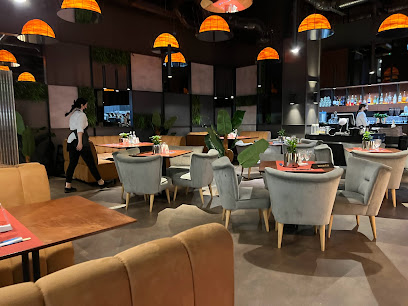
Tēvocis Vaņa
Savor the authentic tastes of Russia at Tēvocis Vaņa in Riga - where tradition meets modern dining in a charming atmosphere.
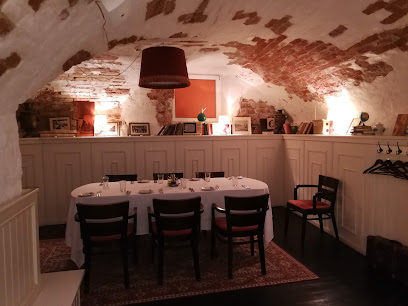
Melnā Bite
Experience modern European cuisine at Melnā Bite in Riga - where tradition meets innovation on every plate.
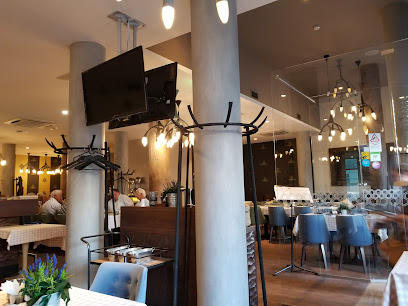
Key to Riga
Experience authentic Latvian cuisine with a modern twist at Key to Riga – where every meal is a celebration of local flavors.
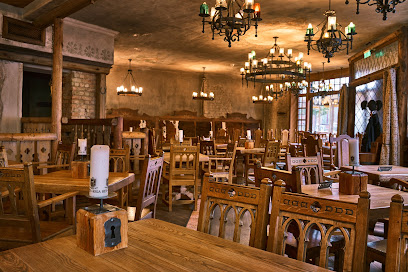
Beef Eater's
Discover the best of Latvian cuisine at Beef Eater's in Riga - where tradition meets modern flavors in a vibrant setting.
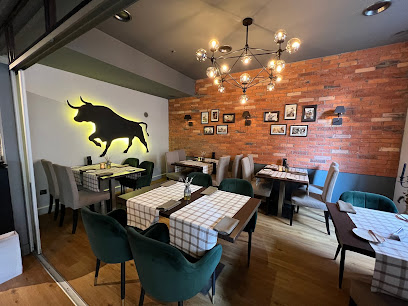
Gan bei - Galleria Riga
Experience exquisite Asian fusion at Gan Bei - Riga's top destination for sushi and Chinese cuisine.
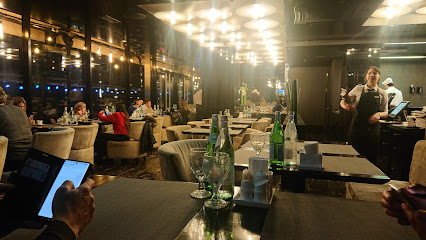
Kozy Eats
Experience the flavors of Latvia at Kozy Eats – where culinary tradition meets modern creativity in a cozy setting.
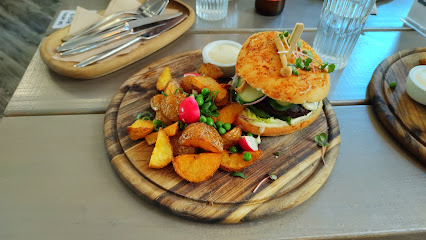
Riviera
Discover Riviera in Riga for an unforgettable fine dining experience blending local flavors with international culinary artistry.
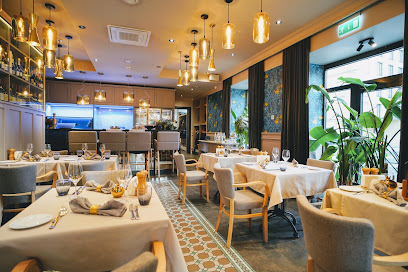
Markets, malls and hidden boutiques
Riga Plaza shopping center
Discover the vibrant shopping scene, exquisite dining, and entertainment options at Riga Plaza, the ultimate shopping destination in Latvia.
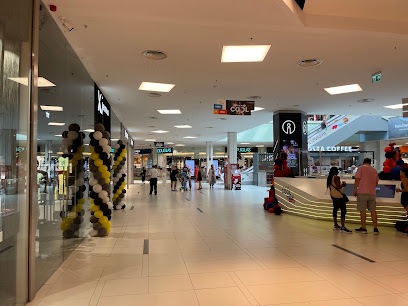
Galleria Riga
Discover Galleria Riga, Rīga's premier shopping destination featuring a blend of local and international brands, dining options, and cultural events.
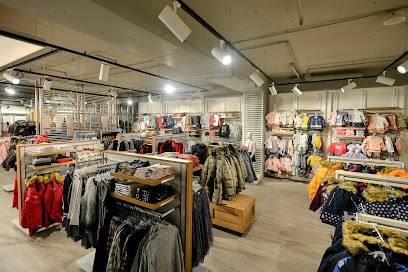
KOKOS apģērbu lielveikals
Explore KOKOS in Riga for a diverse range of stylish clothing, from trendy dresses to maternity wear, perfect for every shopper's needs.
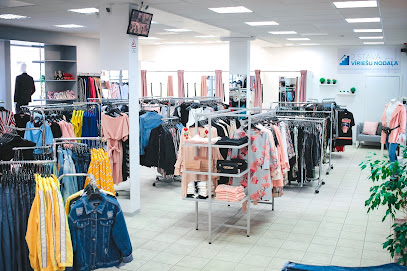
Rimi Galleria Riga
Discover a world of flavors at Rimi Galleria Riga, a bustling supermarket in the heart of Latvia's capital, offering local produce and international delights.
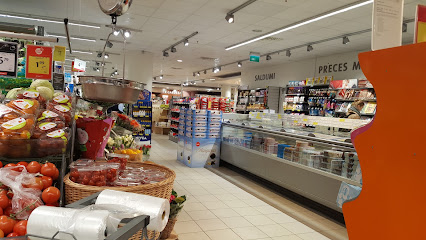
Market Latgale
Discover the charm of Market Latgale, a bustling flea market in Riga, offering local crafts, delicious food, and a unique cultural experience.
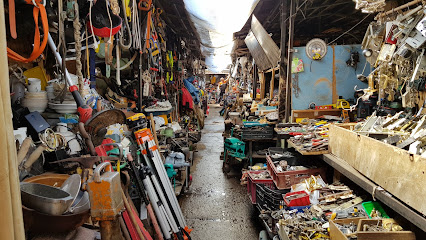
Mego Shop
Explore Mego Shop in Riga for a delightful grocery shopping experience, offering local flavors and essentials in one convenient location.
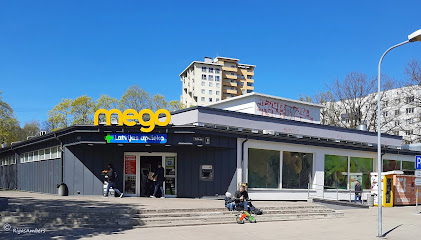
Reserved
Discover cutting-edge fashion for men and women at Reserved, a premier clothing store in the heart of Riga's Central District.
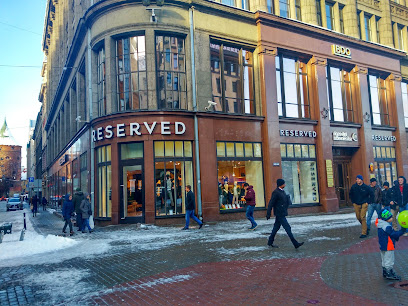
Mego
Discover Mego, the vibrant grocery store in Riga, where local flavors and essentials come together for an unforgettable shopping experience.
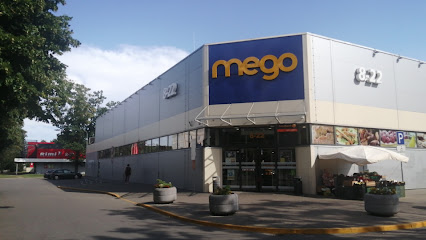
Rimi Mini
Discover the convenience of Rimi Mini in Riga's Central District, offering a wide selection of local and international grocery products.
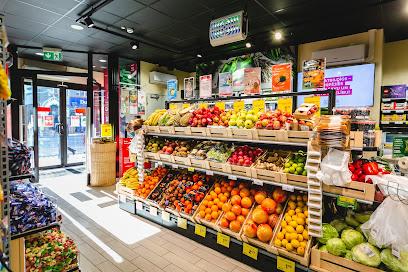
ELKOR Gift Shop suvenīru veikals
Explore the best of Latvian souvenirs and gifts at ELKOR Gift Shop in Riga's Central District, where culture meets creativity.
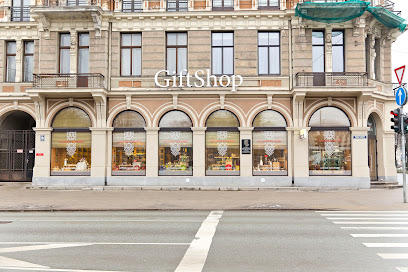
top!
Discover a treasure trove of local and international flavors at Riga's top grocery store, a must-visit for culinary enthusiasts!
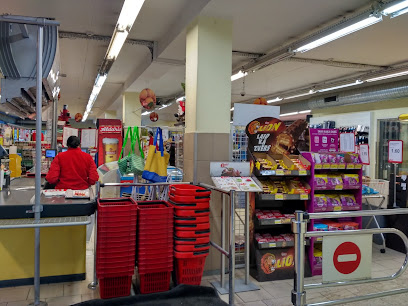
Baltu rotas
Explore the exquisite handcrafted jewelry at Baltu Rotas, where Latvian artistry meets contemporary design in the heart of Riga.
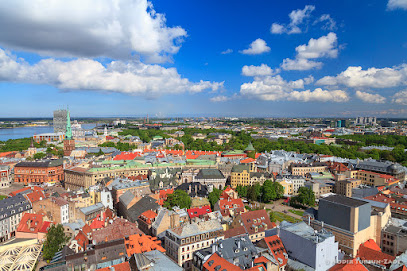
Musk Trading
Explore Musk Trading in Riga for an authentic Indian grocery experience, offering a wide range of spices, snacks, and culinary treasures.
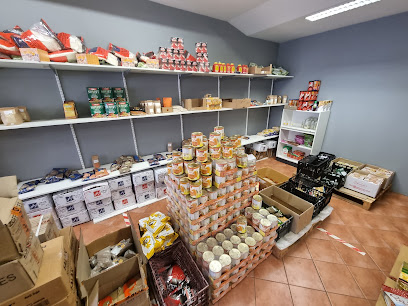
Amber Queen
Explore Amber Queen, a unique jewelry store and museum in Riga, showcasing exquisite amber creations and the rich heritage of Latvia.
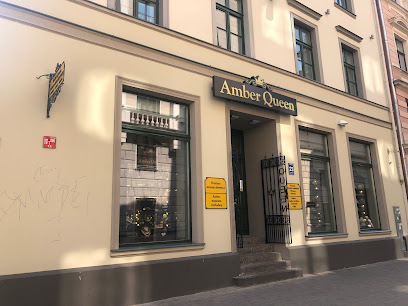
RIIJA
Explore RIIJA, the ultimate souvenir store in Riga, offering authentic Latvian designs and unique handcrafted treasures.
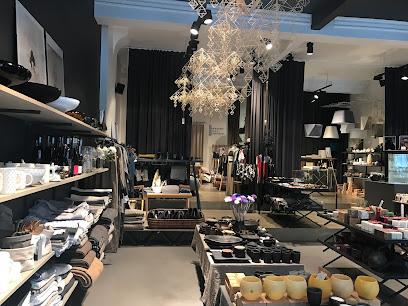
Essential bars & hidden hideouts
Skyline bar
Experience breathtaking views and exquisite cocktails at Skyline Bar, Riga's premier rooftop destination for a memorable night out.
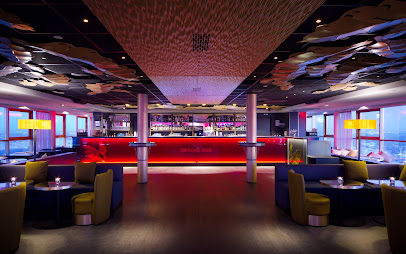
Black Magic
Discover the enchanting blend of chocolate and cocktails at Black Magic, Riga's top destination for sweet indulgence and delightful drinks.
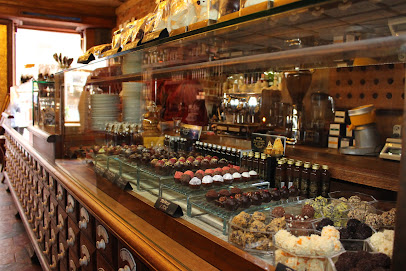
Cuba Cafe
Discover Cuba Cafe, a vibrant cocktail bar in Riga's Central District, offering exquisite drinks and a lively atmosphere for an unforgettable nightlife experience.
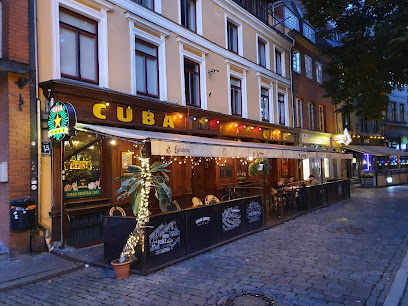
The Armoury Bar
Discover a blend of history and flavor at The Armoury Bar in Riga, where every sip tells a story.
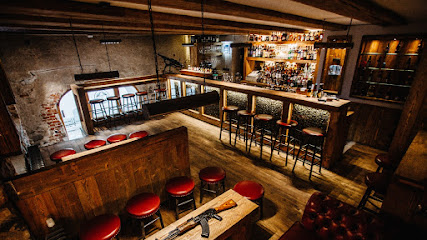
Čē
Discover Čē Bar in Riga: Affordable drinks, vibrant nightlife, and a lively atmosphere await in the heart of Latvia's capital.
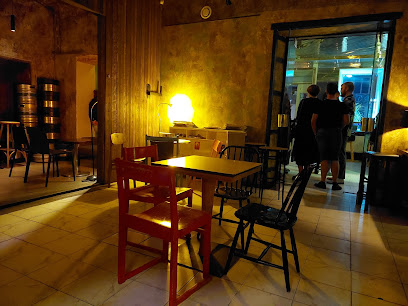
Victory Pub Riga
Experience the lively ambiance of Victory Pub in Riga, where local beers, delicious food, and vibrant entertainment come together in a perfect blend.
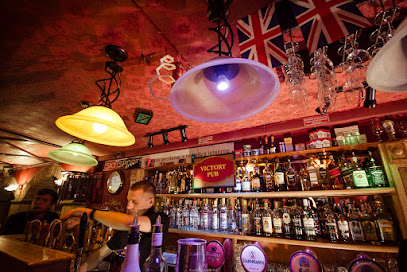
CLOUD NINE
Experience luxury and relaxation at Cloud Nine, Riga's premier cocktail bar, where expertly crafted drinks and delectable cuisine await you.
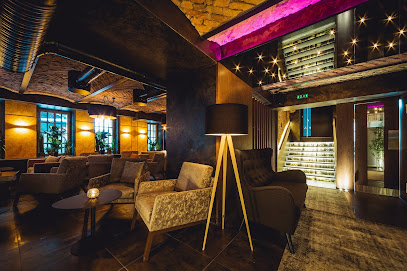
CARTEL Bar
CARTEL Bar in Riga: A lively bar offering eclectic cocktails and a vibrant atmosphere, perfect for enjoying the city's nightlife.
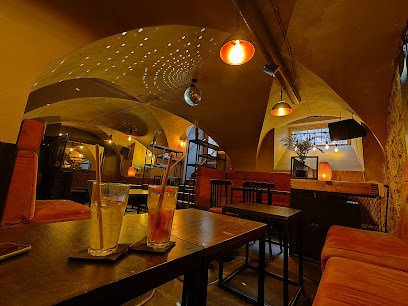
Spot Kafe
Experience the vibrant nightlife of Riga at Spot Kafe, where cocktails, music, and sports combine for an unforgettable evening.
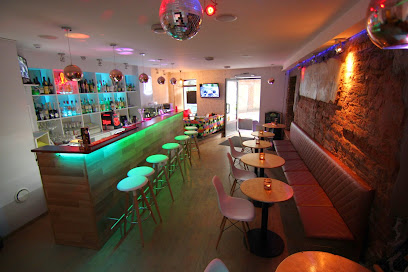
Greenwood bar
Discover the essence of Riga's nightlife at Greenwood Bar, where vibrant music and delicious drinks create unforgettable experiences.
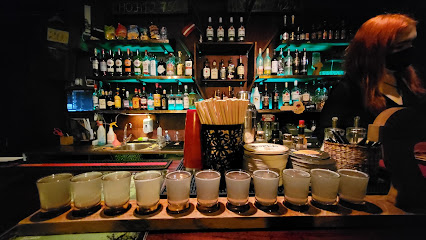
Secret event
Experience the vibrant nightlife of Riga at Secret Event Bar, featuring unique Latvian drinks, live music, and a welcoming atmosphere.
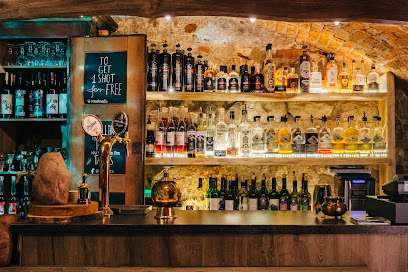
Cynic Bar
Experience the vibrant nightlife of Riga at Cynic Bar, where innovative cocktails and a lively atmosphere await every visitor.
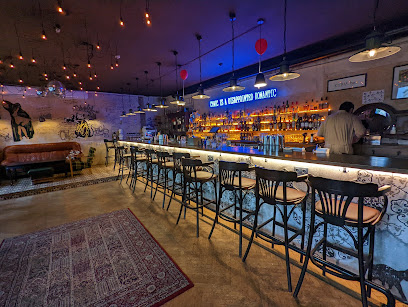
Distillers Republic -Local Craft Distillery & Bar
Discover the essence of Riga at Distillers Republic, a local craft distillery and bar offering artisanal spirits and a vibrant atmosphere.
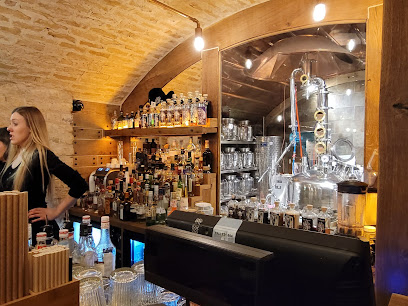
Limonāde
Explore the vibrant nightlife of Riga at Limonāde, a lively bar known for its creative shots and eclectic cocktails.
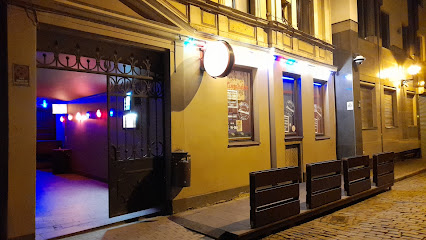
Local Phrases about Riga Bay
-
- HelloSveiki
[sveh-kee] - GoodbyeUz redzēšanos
[ooz rehd-zeh-shah-nohs] - YesJā
[yah] - NoNē
[neh] - Please/You're welcomeLūdzu
[loo-dzoo] - Thank youPaldies
[pahl-dyehs] - Excuse me/SorryAtvainojiet
[aht-vay-noh-yeeht] - How are you?Kā jums klājas?
[kah yoohms klah-yahs] - Fine. And you?Labi. Un jūs?
[lah-bee oon yoos] - Do you speak English?Vai jūs runājat angļu valodā?
[vai yoos roo-nah-yaht ahng-loo vah-loh-dah] - I don't understandEs nesaprotu
[ehs nehs-ah-proh-too]
- HelloSveiki
-
- I'd like to see the menu, pleaseEs vēlētos redzēt ēdienkarti, lūdzu
[ehs veh-ley-tohs rehd-zet eh-dyehn-kahr-tee, loo-dzoo] - I don't eat meatEs nēēdu gaļu
[ehs neh-eh-doo gah-loo] - Cheers!Priekā!
[pree-eh-kah] - I would like to pay, pleaseEs vēlētos samaksāt, lūdzu
[ehs veh-ley-tohs sah-mah-ksaht, loo-dzoo]
- I'd like to see the menu, pleaseEs vēlētos redzēt ēdienkarti, lūdzu
-
- Help!Palīdzību!
[pah-lydzee-boo] - Go away!Aiziet prom!
[ai-zee-eht prohm] - Call the Police!Zvaniet policiju!
[zvah-nyeht poh-lee-tsee-yoo] - Call a doctor!Zvaniet ārstu!
[zvah-nyeht ahr-stoo] - I'm lostEs esmu pazaudējies
[ehs ehs-moo pah-zow-deh-yehs] - I'm illMan ir slikti
[mahn eer sleek-tee]
- Help!Palīdzību!
-
- I'd like to buy...Es vēlētos nopirkt...
[ehs veh-ley-tohs noh-peerkt] - I'm just lookingEs tikai skatos
[ehs tee-kahy ska-tohs] - How much is it?Cik tas maksā?
[tsihk tahs mahk-saht] - That's too expensiveTas ir pārāk dārgi
[tahs eer pah-rahk dahr-gee] - Can you lower the price?Vai Jūs varat samazināt cenu?
[vai yoos vah-raht sah-mah-zee-naht tseh-noo]
- I'd like to buy...Es vēlētos nopirkt...
-
- What time is it?Cik ir pulkstenis?
[tsihk eer poolk-steh-nees] - It's one o'clockIr viens pulkstenis
[eer vee-ehns poolk-steh-nees] - Half past (10)Pusdesmit
[poos-dehs-meet] - MorningRīts
[reets] - AfternoonPēcpusdiena
[pehch-poos-dyeh-nah] - EveningVakars
[vah-kahrs] - YesterdayVakar
[vah-kahr] - TodayŠodien
[shoh-dee-ehn] - TomorrowRīt
[reet] - 1Viena
[vyeh-nah] - 2Divi
[dee-vee] - 3Trīs
[treess] - 4Četri
[cheh-tree] - 5Pieci
[pyeh-tsee] - 6Seši
[seh-shi] - 7Septiņi
[sehp-tee-nyee] - 8Astotie
[ahs-toh-tyeh] - 9Devītie
[deh-vee-tyeh] - 10Desmit
[dehs-meet]
- What time is it?Cik ir pulkstenis?
-
- Where's a/the...?Kur ir...?
[koor eer] - What's the address?Kāda ir adrese?
[kah-dah eer ah-dreh-seh] - Can you show me (on the map)?Vai Jūs varat mani parādīt (uz kartes)?
[vai yoos vah-raht mah-nee pah-rah-deet oos kahr-tes] - When's the next (bus)?Kad ir nākamais (autobuss)?
[kahd eer nah-kah-mah-ees ow-toh-boos] - A ticket (to ....)Bilete uz ....
[bee-lyeh-te oos]
- Where's a/the...?Kur ir...?
History of Riga Bay
-
Riga Bay has been inhabited since ancient times, with the Livonian tribes being some of the earliest known settlers. These Finno-Ugric people established their communities along the shores of the bay, engaging in fishing, hunting, and trading with neighboring tribes.
-
In 1201, Bishop Albert of Buxhoeveden founded the city of Riga at the mouth of the Daugava River, an essential waterway flowing into Riga Bay. This strategic location quickly transformed Riga into a significant trading hub in the Baltic Sea region, attracting merchants from across Europe.
-
During the 13th and 14th centuries, Riga became a prominent member of the Hanseatic League, a powerful economic alliance of merchant guilds and market towns in Northwestern and Central Europe. This period saw significant growth in trade and wealth for the city and the surrounding bay area.
-
From 1558 to 1583, the Livonian War ravaged the region, as various powers, including Russia, Poland, and Sweden, fought for control over the Baltic territories. Riga Bay and its surrounding regions were heavily contested during this conflict, leading to significant political and territorial changes.
-
In the early 17th century, Riga and its bay fell under Swedish control during the Polish-Swedish War. This period, known as the 'Swedish Era,' saw infrastructural development and the establishment of Riga as the largest city in the Swedish Empire.
-
Following the Great Northern War (1700-1721), Riga Bay became part of the Russian Empire. Tsar Peter the Great recognized the strategic importance of Riga and invested in fortifying the city and its port, ensuring its role as a crucial naval base and trading center.
-
During World War I, Riga Bay witnessed significant military action, with battles fought between German and Russian forces. Following the war, Latvia declared its independence in 1918, with Riga Bay becoming an integral part of the new nation.
-
In 1940, Latvia was occupied by the Soviet Union, a control that lasted until the fall of the USSR in 1991. Throughout the Cold War, Riga Bay was a strategically vital area for the Soviet Navy, with numerous military installations and restricted zones.
-
Since regaining independence in 1991, Riga Bay has experienced significant economic and cultural revitalization. The area is now a popular tourist destination, celebrated for its rich history, beautiful landscapes, and vibrant maritime culture.
Riga Bay Essentials
-
Riga Bay is accessible via Riga International Airport (RIX), which is well-connected with major cities across Europe and beyond. From the airport, you can take a taxi, bus, or rental car to reach your destination within the bay area. Alternatively, Riga is also accessible by train and bus from neighboring countries such as Estonia, Lithuania, and Russia.
-
Within Riga Bay, public transportation options include buses, trams, and trolleybuses operated by Rīgas Satiksme. Tickets can be purchased at kiosks or directly from the driver. Taxis and ride-sharing services like Bolt are also available. For a more scenic option, consider renting a bike or taking a ferry to explore the bay area.
-
The official currency of Latvia is the Euro (EUR). Credit and debit cards are widely accepted, but it's advisable to carry some cash for smaller shops and markets. ATMs are readily available throughout the Riga Bay area. Currency exchange services can be found at the airport, banks, and exchange offices in the city.
-
Riga Bay is generally safe for tourists, but it's wise to take standard precautions. Avoid walking alone at night in poorly lit areas and keep your belongings secure in crowded places. Specific areas to be cautious of include the Central Market and the Old Town at night, where pickpocketing can occur. Always be aware of your surroundings and avoid displaying valuable items.
-
In case of emergency, dial 112 for immediate assistance. This number connects you to police, fire, and medical services. Major hospitals and clinics are available in Riga, and most medical staff speak English. It's advisable to carry travel insurance that covers medical emergencies. Pharmacies are widely available for minor health issues.
-
Fashion: Do dress in layers as the weather can change quickly. Don't wear overly casual clothing when visiting upscale restaurants. Religion: Do respect local customs when visiting churches, such as covering your head and shoulders. Public Transport: Do validate your ticket upon boarding. Don't eat or drink on public transport. Greetings: Do greet people with a friendly handshake. Don't be overly familiar with strangers. Eating & Drinking: Do try local dishes like smoked fish and rye bread. Don't refuse an invitation to a local's home, as hospitality is highly valued.
-
To experience Riga Bay like a local, visit the Central Market, one of the largest and most vibrant markets in Europe. Engage with locals, who are generally friendly and willing to share insights about their culture. Don't miss a walk along the beautiful Jurmala beach, and be sure to try a traditional Latvian sauna for a unique cultural experience.
Nearby Cities to Riga Bay
-
Things To Do in Jurmala
-
Things To Do in Sigulda
-
Things To Do in Cesis
-
Things To Do in Talsi
-
Things To Do in Šiauliai
-
Things To Do in Kuldiga
-
Things To Do in Panevėžys
-
Things To Do in Valga
-
Things To Do in Ventspils
-
Things To Do in Pärnu
-
Things To Do in Kuressaare
-
Things To Do in Viljandi
-
Things To Do in Utena
-
Things To Do in Liepaja
-
Things To Do in Daugavpils













